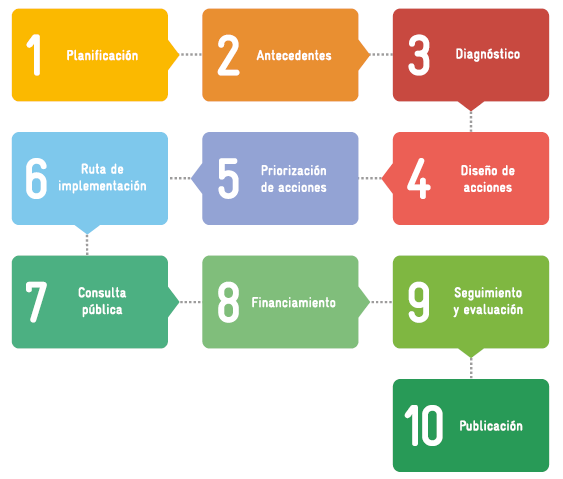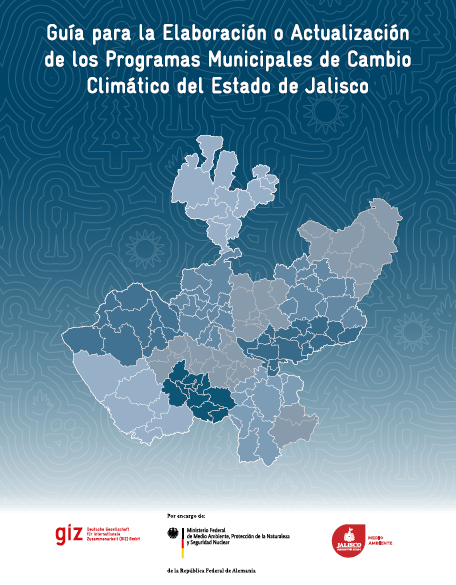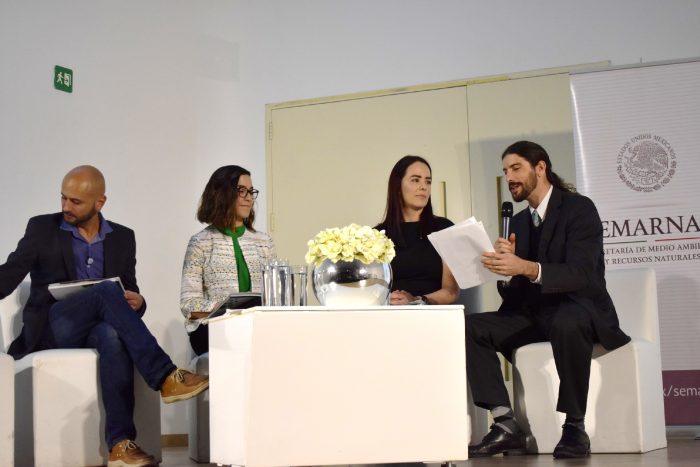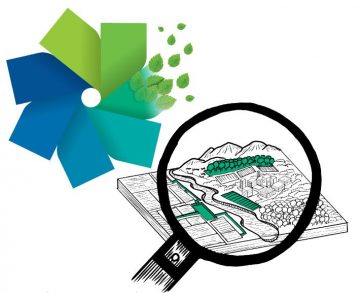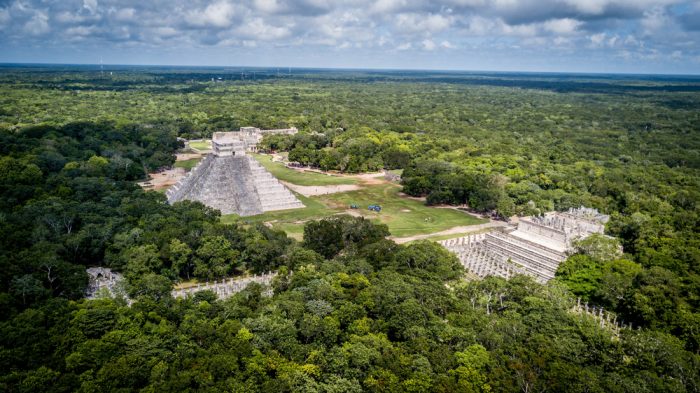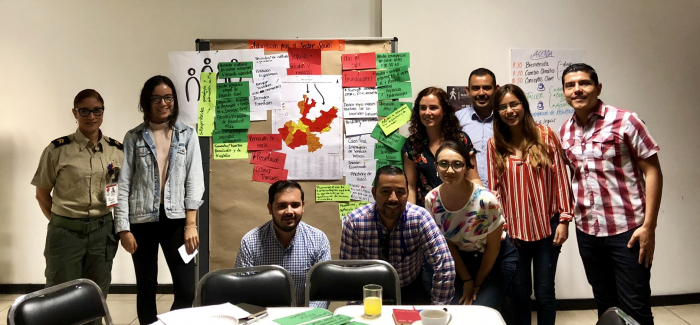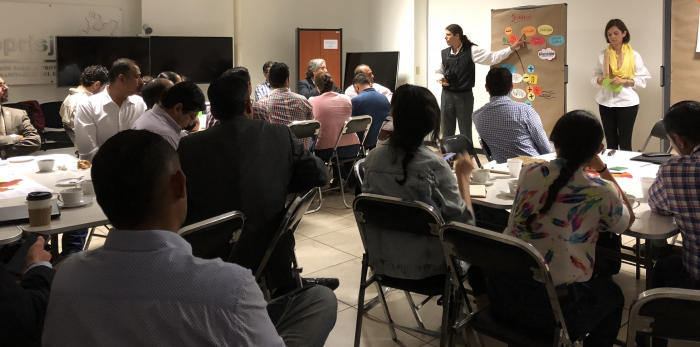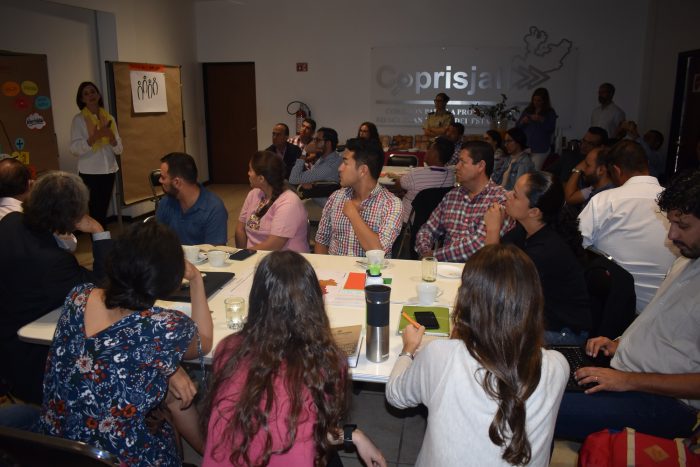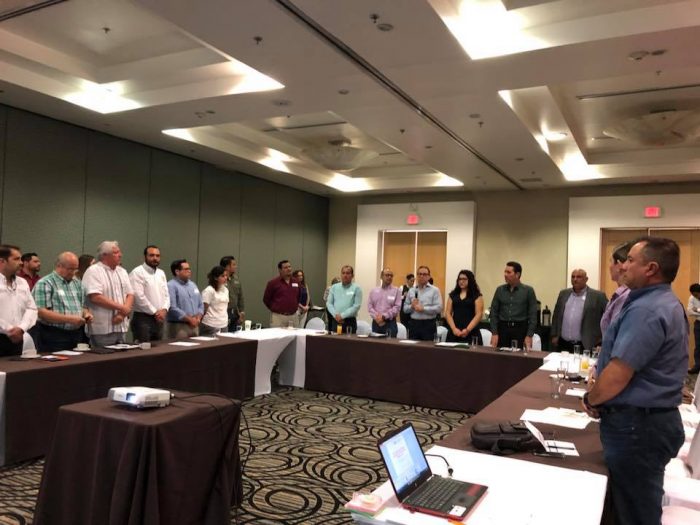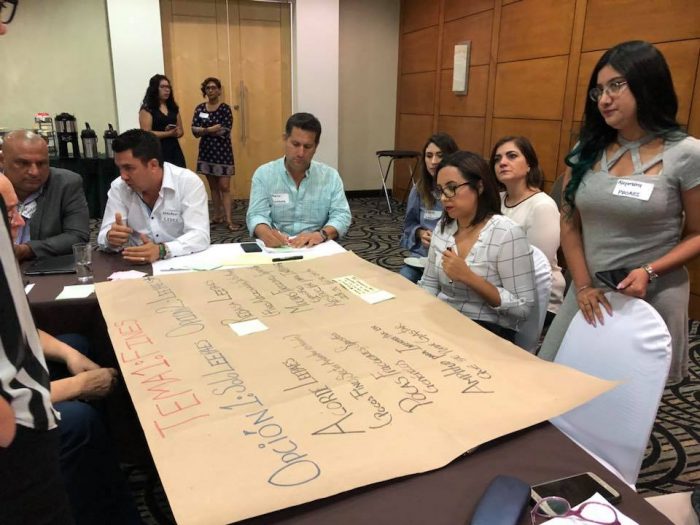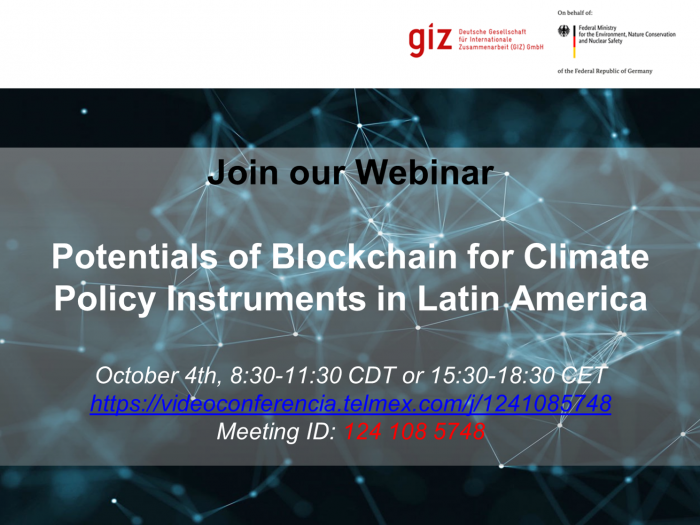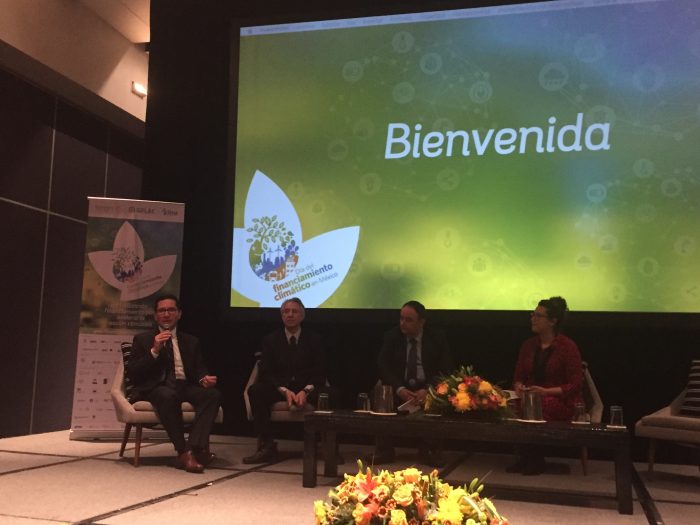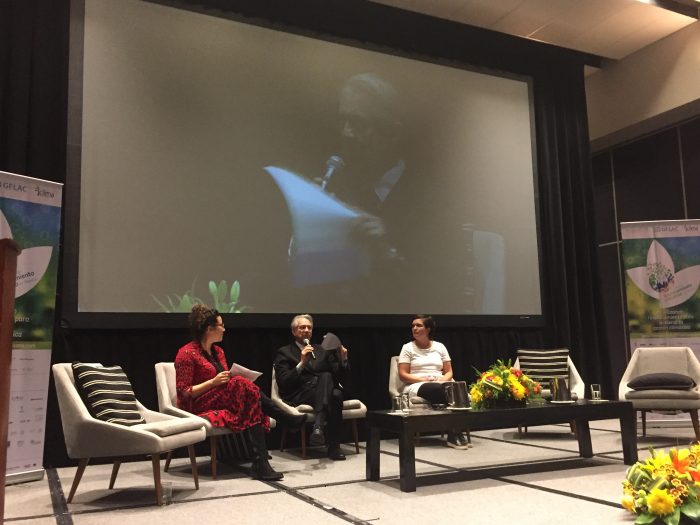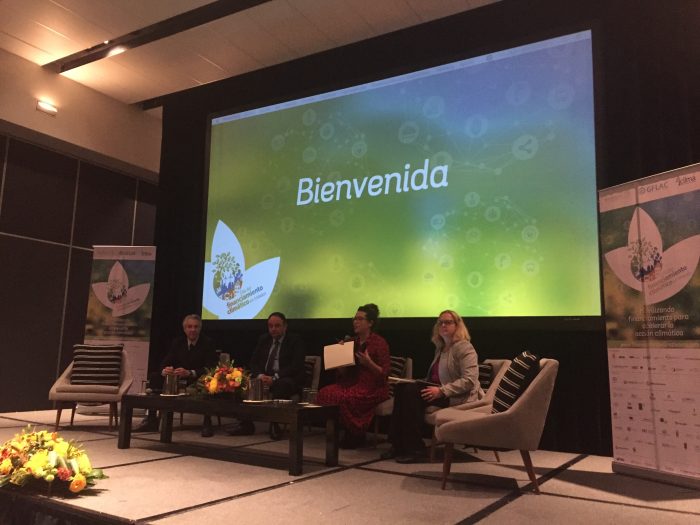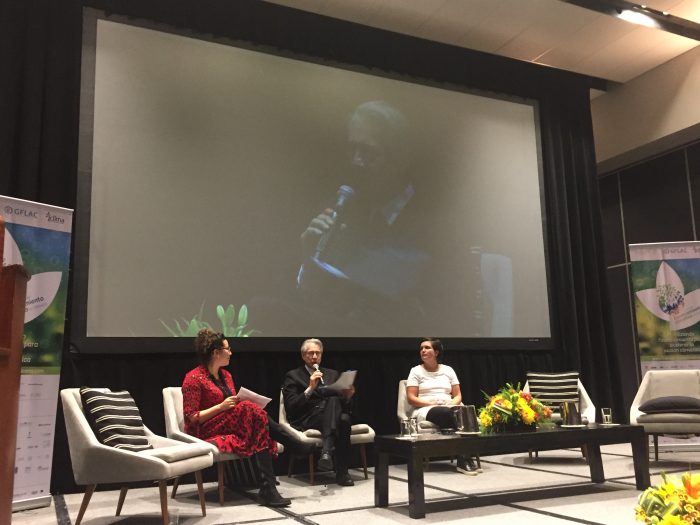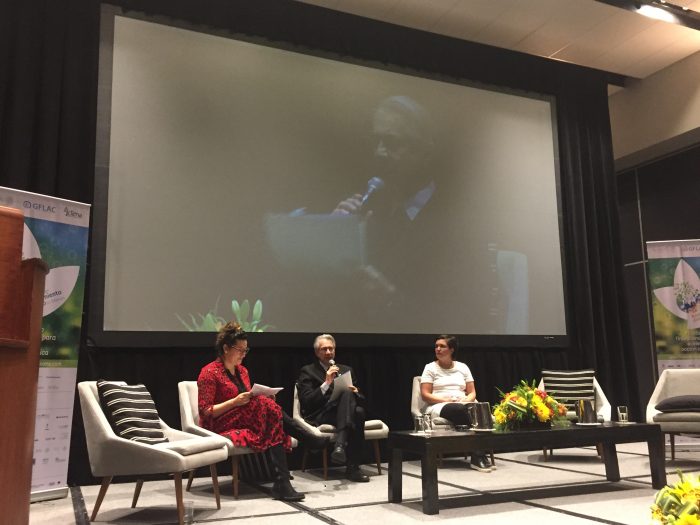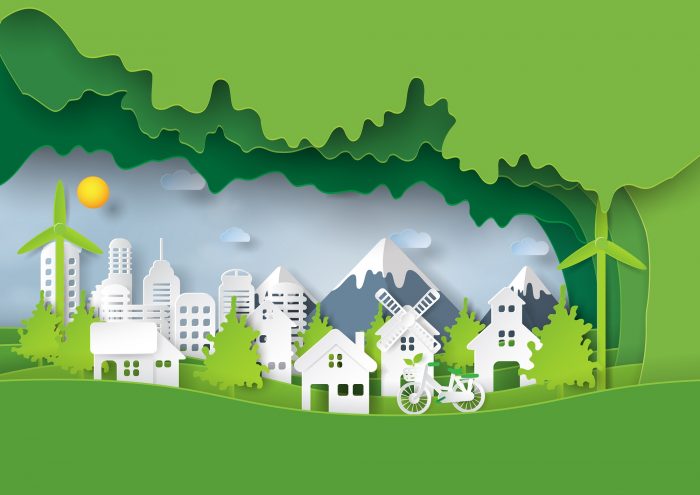The First Meeting on Energy Efficiency and Energy Management Systems Learning Networks at Municipal Level: Experiences of Mexico and Germany had the purpose of promoting the concept of municipal Learning Networks (LN) as mechanisms to achieve an effective energy management and reduce the emissions of Greenhouse Gases (GHG) locally, as well as to exchange experiences based on several success stories from Mexico and Germany.

The meeting was held in Mexico City on May 3rd, 2019 and representatives of subnational governments of Mexico and Germany, representatives of State Secretaries, the Institute of Urban Planning of Germany (Difu) and the Deutsche Gesellschaft für Internationale Zusammenarbeit (GIZ) GmbH participated. During the event, the speakers addressed different perspectives on energy efficiency (EE) and energy management at the municipal level in Germany and Mexico, as well as regulatory and financial differences and similarities to implement Learning Networks and EE measures. There were also success stories from both countries, such as the Aguascalientes LN on issues of public lighting and pumping of drinking water. In the framework of this event the launch of the video of experiences of Energy Efficiency Learning Networks at municipal level was made.

Among the most noteworthy points, was that the LN help to reduce costs in the energy management systems, the costs of implementing the LN are reduced because they are shared among different actors and / or municipalities, they help to increase competitiveness, and they improve the energy performance and generate capacities thanks to the exchange of experiences among the actors involved. It was also mentioned that a great challenge is to follow up the activities once the LN is finished, since additional funds are needed to implement the EE measures identified.
Learning Networks are collaborative spaces where different organizations with a common goal get together, in this case EE or energy management, achieving results from the exchange of experiences, through technical support and professional moderation. The concept has been successfully implemented in countries such as Switzerland and Germany, where the initiative “Energy Efficiency Learning Networks” (Initiative Energieeffizienz-Netzwerke, IEEN, for its acronym in German) has been created with companies, and since 2015, has also integrated the municipal level.
In Mexico, within the framework of the National Program for Energy Management Systems (PRONASGEn) 2014-2018, the National Commission for the Efficient Use of Energy (CONUEE) with the support of GIZ has laid the foundations for the implementation of learning networks in the country. In this regard, they developed in 2016 various manuals and guides on the subject and several learning networks with the private initiative in different productive sectors, as well as at the municipal level, have been carried out with great success. By 2019, three municipal learning networks have been implemented in Mexico in the States of Coahuila, Aguascalientes and Morelos, with the participation of 30 municipalities. Therefore, the potential to develop municipal LN is still very large.

Because the municipal LN show differences and a different level of complexity when compared with those in purely business contexts, the CONUEE, with the support of GIZ, prepared the document “Strategic orientations for the implementation of Energy Efficiency Learning Networks and Systems of Energy Management at the Municipal Level“, which was presented during the meeting. It takes up the experiences of municipal learning networks in Mexico, Germany and Brazil and seeks to support local actors in overcoming the challenges that a municipal learning network faces in order to successfully implement the model and, ultimately, to introduce the methodology as a means to improve the energy performance of the municipalities.
Finally, as part of the dynamics of the meeting, the attendees identified their main energy needs and, based on this, raised issues in which they could develop Learning Networks in their respective municipalities, identifying potential partners and considering what technical support they would require of the CONUEE. Some of the topics in which the participants showed interest in creating LN were: waste management, water resources, public lighting and buildings. In addition, some of the needs identified were: training programs, institutional linkage, communication, dissemination and assistance for financing projects at the local level.

For more information, see here:
- Learning Networks (LN)
- Learning networks on Energy Management Systems
- Energypedia: Learning Networks

